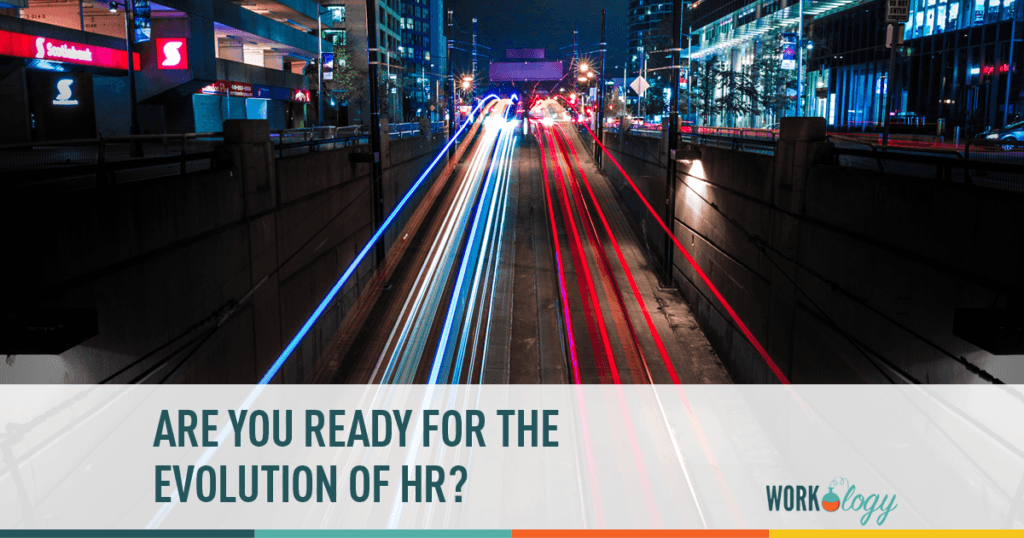I just came back from this year’s IHRIM (International HR Information Management) conference and my head is buzzing with ideas. I’ve got small notebooks full of notes and lists — complete with unchecked boxes and action items. One thing that continues to resonate with me is “change” and HR’s need to evolve. Jason Averbook primed the pump and kicked off the event, but, for me, the theme ran deep throughout the event and has remained with me (and all those notes and to-dos that I’ve scribbled down) with every session I attended, every exhibitor I spoke with, with many of the colleagues that chatted with .
Consumer Technology is in the Driver’s Seat
Employees have better technology on the consumer side, than they do at work. Maybe no surprises there — but that technology has changed the way that we work, live, and communicate. Multi-tasking on steroids IS the new norm. I ordered and paid for take out dinner, confirmed dinner plans for the next day in a text, got a call to remind me to pick up some items at the store, and clipped a coupon all on my phone while standing in the line at the grocery store. Its not an extraordinary example — you do it too — and so do our employees. Employees want that same experience when it comes to #hrtech and tools when they come to work. Its not an “industry” thing — so if you’re in a non-tech industry and think that you can ignore that “cool tech-y stuff”– think again. In HR, we need to take a note and make HR systems relevant.
A 2013 study showed that the average person goes to Facebook 14 times a day. I personally think that’s a little conservative, but even given that, one must ask, “why would someone go to a website 14 times a day?” It could be updates, news, photos, games, work, calendar updates or a dozen other reasons, but ultimately, there is something of value that they are getting. The same can be said for other popular apps and websites. HR systems should have a similar value — people should want to go there to get something of value (maybe not 14 times a day, but you see where I’m going with the point, right?).
Data and Integrations are Enablers
I know that “big data” is a bit of a buzzword these days and it means different things to different people. However, one thing that I think that we can all agree on: there is a lot of information and data on people. I’m not even talking about HR data — just information in general — just think about all the information that Facebook has on you – even if you are not active on the site, people may still be sharing information about you. We need to ask ourselves two things: how do it you centralize, integrate and/or organize the information and if you have multiple systems, how do make it easy and meaningful for employees. Why change your profile picture in a series of different systems? (I know why from a technical perspective, but think about it from the end user, your employee.)
Ever sign up for a new app or website with your twitter, facebook, or other profile — notice how it brings over your photo and profile information? How about checking in on the number of steps on your Fitbit on your computer and then later your smartphone? Whether you think its helpful or creepy, the integration and syncing is easy and seamless — and its becoming the norm. I don’t think that anyone is doubting the importance of data and integrations. I think that there questions on “how” to do it and how to do it better. I also think that there are some opportunities to really understand how to use this information — so you’ve got “big data,” now what? I like that HR professionals have been talking more about how to use this information to help leaders make better business decisions and programs for employees — but many are still trying to make the leap to catch up.
HR Could Lead the Way
HR has this amazing opportunity to lead the way with some innovative process, programs and/or technology. You don’t have to be a technologist — remember, this is stuff that we are all doing already in the consumer space. You just have to think like a consumer — think about the products, apps, processes that you have outside of work and bring those concepts with you to work. Saying you’re not a technologist is not an excuse. Saying that you don’t have the technology isn’t one either — there are many small steps that you can do to your processes and programs that will get you closer until you get get some of the tech pieces in place. This move, this evolution, is all about thought leadership — its about how you think about HR and HOW HR provides value to the business. The role HR could play. This is about re-invention. If we don’t define our role, it will be defined for us.
Change is coming. Are you ready?








